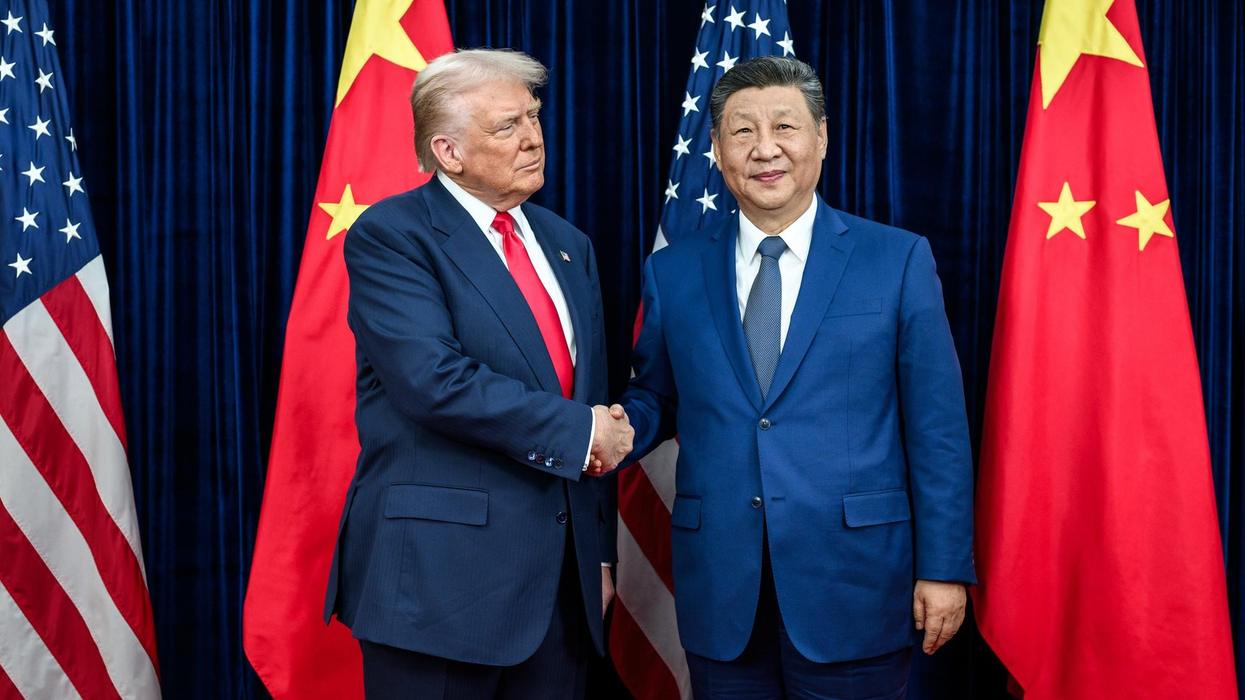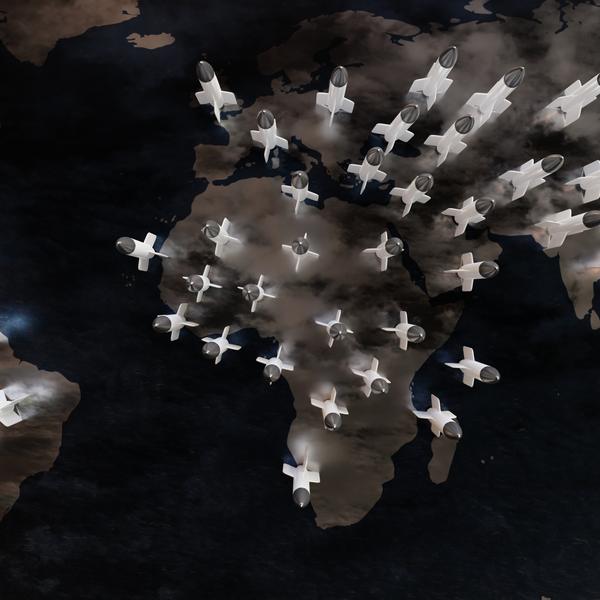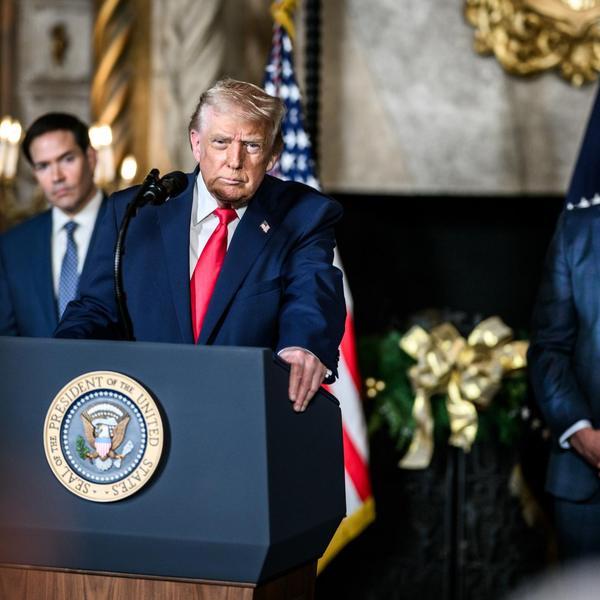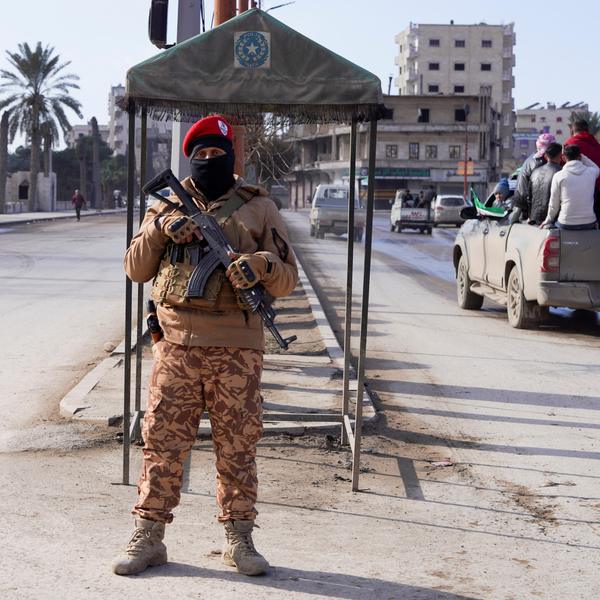The United States has solidified the permanence of its military controls over three central Pacific island states and their vast maritime areas.
Years-long negotiations over the compacts of free association that Washington maintains with Palau, the Marshall Islands, and the Federated States of Micronesia (FSM) concluded quietly earlier this year without any challenges to the permanence of U.S. military controls. In contrast to previous rounds of negotiations, when the United States faced strong pushback over the limits to each country’s sovereignty, the negotiations have left the United States in a position to maintain its military controls forever.
“This relationship that the freely associated states has with the United States is unprecedented,” Col. Grant Newsham (ret.) told Congress as negotiations were ongoing in June 2023. They may be “the only three countries on Earth that have given up their sovereignty and control of a part of their government to the United States.”
The Compacts
For decades, the U.S. has overseen compacts of free association with the three countries, which are located in the central Pacific Ocean between Hawaii and the Philippines. Home to an estimated 200,000 people, they consist of more than 1,000 islands and atolls that range across a vast oceanic area that is comparable in size to the continental United States.
Each compact has gone through several rounds of negotiations, including negotiations that led to initial agreements in the 1980s with 15-year terms, another round during the 2000s to make the compacts permanent, and the latest round from 2020 to 2024 that largely focused on the terms of U.S. economic assistance. While each compact is unique, they all share common features.
Under the compacts, Washington has provided the compact states with grants, the latest of which commits Washington to provide a total of $7.1 billion in funding for the next 20 years, and visa-free residency in the United States for their citizens. Nearly 100,000 of their citizens live in the United States, of whom more than 1,000 serve in the U.S. military.
In exchange, the compact states have conceded several controls to Washington, one of which is what U.S. officials call “strategic denial,” or the authority to prohibit the military forces of other countries from accessing the compact states. Although strategic denial is inconsistent with the UN Convention on the Law of the Sea, which provides all countries with the right of innocent passage in territorial waters and freedom of the high seas in exclusive economic zones, U.S. officials have insisted that it is their right to control the seas, land, and airspace of the compact states.
Ironically, the U.S. position contrasts sharply with its insistence, over Chinese protests, that the U.S. Navy and Coast Guard have the right to conduct so-called “freedom of navigation operations” in waters claimed by Beijing in the South China Sea.
Another U.S. control is known as the defense veto. As its name implies, the defense veto provides the United States with the power to prohibit the compact states from entering into diplomatic arrangements with third countries that, in Washington’s view, are inconsistent with its military priorities.
Taken together, strategic denial and the defense veto impose major limits on the sovereignty of the compact states and form the basis for a U.S. oceanic empire in the central Pacific Ocean that is large, illegal, and permanent.
“The bottom line is that the compacts helped secure a part of the Indo-Pacific that is larger than the continental United States,” Defense Department official Ely Ratner told Congress earlier this year.
Mutual Agreement?
U.S. officials insist that, in principle, the compact states remain sovereign over their territory, but that position is misleading. Even if all three compact states unilaterally terminated their compacts, the United States would remain in a position to control them, having built into the compacts a series of mechanisms to make U.S. military controls permanent.
Thus, with both the Marshall Islands and the Federated States of Micronesia, Washington maintains a subsidiary Mutual Security Agreement that enables the United States to retain its power of strategic denial in the event that either country unilaterally withdraws from its compact. Language in each agreement states that modifications must be made by “mutual agreement,” meaning that any changes require Washington’s approval.
The Mutual Security Agreements “will remain in full force and effect until terminated by mutual agreement,” Defense Department official Richard Armitage told Congress in August 1984, when the initial compacts were being negotiated.
For Palau, the United States has gained a similar guarantee, one that is built directly into the compact. A provision affirming Washington’s right of strategic denial shall remain in effect until terminated or amended by “mutual consent.”
In the past, the three Pacific island states made several moves to shift away from the permanence of U.S. military controls. When the Marshall Islands and the Federated States of Micronesia renegotiated the terms of their compacts in the early 2000s, for example, they sought to safeguard the sovereignty of their countries, but Washington refused to relinquish its powers. Not only did it preserve the Mutual Security Agreements, but it also added new provisions to the compacts to create a permanent defense veto.
Several U.S. demands “are not consistent with the FSM’s status as a sovereign nation,” the FSM’s chief negotiator at the time, Peter Christian, informed Congress in 2002. He included among them “the provision calling for a grant of a permanent defense veto.”
The Shift Toward Imperial Permanence
What was perhaps most striking about the latest round of negotiations was that negotiators on both sides avoided discussion of the permanence of U.S. military controls. While they clashed over other topics, such as the terms of U.S. economic assistance and the U.S. nuclear legacy in the Marshall Islands, they showed little interest in revisiting past debates about the sovereignty of the compact states.
Some leaders of the compact states seemed to abandon the idea of sovereignty altogether. FSM President David Panuelo and Palauan President Surangel Whipps identified their countries as “part of the homeland,” meaning the United States.
The little discussion that concerned sovereignty tended to occur during hearings on Capitol Hill, where members of Congress sought clarification on the nature of U.S. relations with the compact states.
At one hearing in October 2023, Congresswoman Jenniffer González-Colón (R-PR) questioned U.S. diplomat Joseph Yun about the compact states’ sovereignty, including whether they would be sovereign if the compacts are terminated.
“Just to confirm, the freely associated states are three independent nations, and they are each their own country, each a sovereign republic,” González-Colón stated. “Is that correct?”
“Correct,” Yun said.
Rather than disputing such assertions, however, members of Congress have helped perpetuate the illusion of sovereignty. When they have raised questions, they have done so to convey a false impression of the compact states’ independence.
“The purpose behind these questions was just to highlight the reality that, at the end of the day, despite our compact agreement, the freely associated states are independent nations,” González-Colón said.
Indeed, U.S. leaders have been actively misleading people about the compact states. By referring to the three countries as “freely associated states” and insisting on their sovereignty, they have made the compacts appear as arrangements between equals rather than neocolonial structures that keep the compact states under permanent U.S. military controls.
Permanent Oceanic Empire
U.S. officials have periodically acknowledged the extent to which the United States controls the compact states. Not only has Yun spent the past several years insisting upon U.S. control, such as when he openly boasted to Congress in July 2023 about “our ability to control access to the land, the sea and air of these countries,” but his colleagues have also emphasized the permanence of U.S. military controls, especially with regard to strategic denial.
“We have that right, even if the compact is terminated,” Col. Albert Short (ret.), a former U.S. compact negotiator, told Congress in June 2023, referring to strategic denial. “So it is a unilateral right on the part of the United States to continue or to terminate.”
The leaders of the compact states have done little to address such provocative statements. Although they had once sought guarantees of the sovereignty of their countries, they have now turned their focus to the terms and size of U.S. economic assistance, signaling an acceptance of the status quo.
What the most recent negotiations have confirmed, in short, is that there is now tacit agreement among the leaders in Washington and the compacts states over the permanence of U.S. military controls. Their shift away from past debates about sovereignty marks the start of a new era of U.S. imperial permanence in the compact states.
- How the Solomon Islands became a flashpoint for US-China rivalry ›
- Yes Micronesia, there is a Santa Claus. Sort of. ›
- US flouts international law with Pacific military claims ›
- The new battle for the compact states ›
- Not wanted: US, China barred from major Pacific Island summit | Responsible Statecraft ›
















